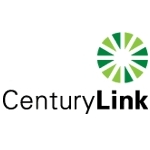CenturyLink, Inc. says it will bring high-speed Internet services to approximately 1.2 million rural households and businesses in 33 states by accepting approximately $500 million a year for six years from the Federal Communications Commission (FCC)’s Connect America Fund (CAF). CenturyLink is accepting 33 CAF phase II statewide offers from the FCC to bring Internet service with speeds of at least 10 Mbps download and 1 Mbps upload to locations in FCC-designated, high-cost census blocks, says the telco.
Once CenturyLink’s CAF II six-year build-out plan is finalized over the coming months, construction is expected to begin in early 2016. CenturyLink is accepting the CAF II obligation to build and maintain a broadband network that reaches these high-cost locations, thus committing billions of dollars in capital expenditures to rural America.
CenturyLink has decided to decline the CAF II statewide offers for the states of California, Mississippi, Oklahoma and Wyoming. According to the CAF II rules, companies must decide whether to accept CAF II funding and related service obligations for their service areas on a statewide basis. If a company declines to accept a CAF II statewide offer, that funding will be subject to a competitive bidding process prescribed by the FCC whereby eligible providers can bid to serve all or part of those areas. CenturyLink remains committed to meeting the communications needs of its customers and may elect to participate in the FCC’s bidding process and compete for CAF II support once the auction rules and requirements are finalized by the FCC.
“Our acceptance of the CAF II funding continues our commitment to further bridge the urban-rural digital divide by bringing high-speed broadband to households and businesses in many of CenturyLink’s most rural markets,” said John Jones, CenturyLink senior vice president for public policy and government relations. “These are high-cost markets with many deployment challenges. The Connect America Fund, along with our significant capital investments over the years, help make deploying rural broadband more cost effective. We believe the high-speed connectivity we will provide will bring many benefits to rural communities, including economic development and better access to education and healthcare services such as distance learning and telemedicine.”
The FCC created the CAF program in 2011 to facilitate the deployment of high-speed Internet access in high-cost locations by transitioning Universal Service Fund money that was supporting rural landline service to the build-out of broadband infrastructure in rural communities. CenturyLink previously accepted approximately $75 million in CAF phase I interim, one-time support to bring broadband with 4 Mbps download speed to nearly 114,000 unserved rural locations.










